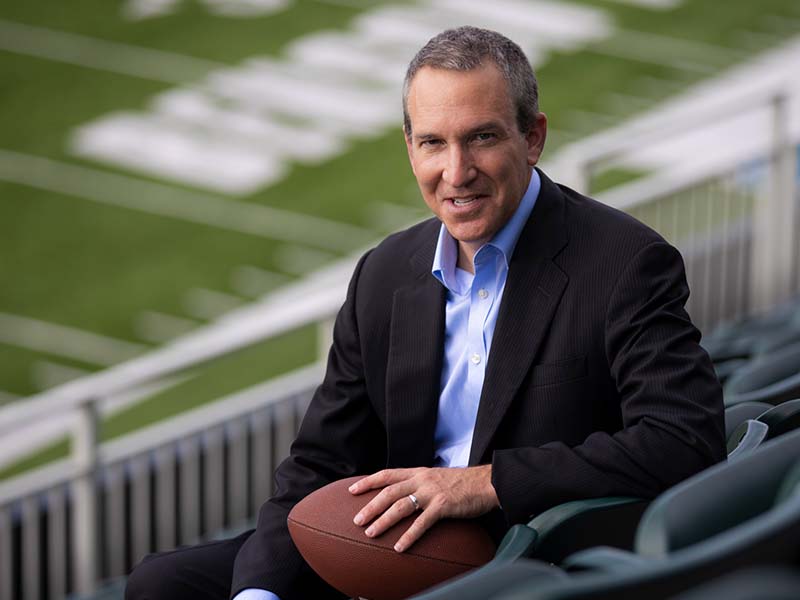The highly anticipated jury verdict in the concussion case Gee v. NCAA is decided with a jury rejecting the request from the widow of Matthew Gee, who was seeking $55 million from the association. Specifically, Alana Gee claimed that the association was responsible for the head injuries he suffered while playing football, which ultimately led to his death.
The significance of the decision is that it could quell concussion litigation for years to come.

“In spite of the NCAA’s unpopularity and the fact that it was being challenged by a sympathetic plaintiff, the jury still ruled against the plaintiff,” Gabe Feldman, director of the Tulane University’s Sports Law Program, told Sports Litigation Alert. “That’s fairly telling. This was a calculated risk by the NCAA taking this to trial knowing that this could possibly be a bellwether case that could potentially provide a roadmap to hundreds or thousands of other plaintiffs.”
By way of background, Gee was a linebacker at USC from 1988 to 1992. In the litigation, his widow claimed that he suffered an estimated 6,000 hits as a college athlete. This in turn allegedly led to permanent brain damage, or CTE, and a dependency to cocaine and alcohol, all of which contributed to his early death at age 49.
The NCAA countered that Gee’s health problems were unrelated to his CTE and that the cardiac arrest he suffered was brought on by untreated hypertension and acute cocaine toxicity.
“There was no scientific evidence linking his death to CTE or to playing football in college,” Tony Corleto of Gordon Rees Scully Mansukhani LLP told the Alert. “Credit to the NCAA and its defense team. They played this well and got the correct outcome.”
Ultimately, the NCAA won out.
“We are gratified that the jury, after considering four weeks of evidence and testimony, agreed overwhelmingly with our position in this case,” said Scott Bearby, NCAA senior vice president of legal affairs and general counsel. “The NCAA bore no responsibility for Mr. Gee’s tragic death, and furthermore, the case was not supported by medical science linking Mr. Gee’s death to his college football career. We express our deepest sympathies to Mr. Gee’s family.”
Interestingly, the NCAA said it will “continue to aggressively defend against cases like this that wrongly try to exploit the legal system to unfairly target the NCAA,” a task that will be easier now given the outcome of the Gee decision.
Some plaintiffs’ attorneys may draw hope from the fact that Matthew Gee suffered from a slew of health issues, which made it difficult to establish CTE as the overarching cause of his death. That and other factors were enough to dampen the otherwise compelling testimony of Dr. Robert Cantu, a neurosurgery specialist who is the medical director for the National Center for Catastrophic Sports Injury Research and co-director of the Center for the Study of Traumatic Encephalopathy at Boston University.
“I believe a substantial contributing factor to his addiction was the CTE,” Cantu testified in the trial. “The CTE was due to the trauma that his brain took while playing football, predominantly — not exclusively, but predominantly — at the college level. The CTE is what caused him to not be able to better manage his addiction.”
Despite this testimony, in future CTE cases further evidence should be included to sufficiently link head injuries during collegiate athletics to proof on a former student-athlete’s death.
Corleto characterized the ruling as the extension of a “losing streak” for one of the plaintiffs’ leading concussion experts.
“This continues a losing streak for the noted expert pathologist, Bennet Omalu,” said Corleto, who has extensive experience defending clients in concussion cases. “In September, an Allegheny County jury returned a defense verdict in a post-concussion syndrome / Traumatic Encephalopathy Syndrome case brought by a former high school football player against a PA athletic association. Omalu served as plaintiff’s expert in Gee, the PA case, Onyshko and Archie.”
However, he still believes more claims will follow.
“Unfortunately, there is an organized effort to perpetuate the belief that contact sports lead to bad health outcomes,” he said. “Until that changes, these cases will continue.”


